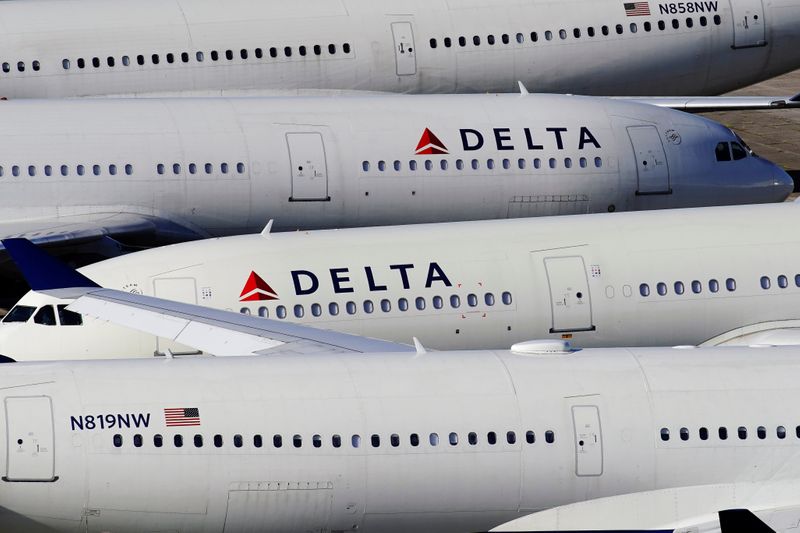By Tracy Rucinski
CHICAGO (Reuters) - As some Americans prepare to travel for the July 4 holiday weekend, and airlines slowly ramp up service, the U.S. government has not changed rules for air travel during the pandemic, leaving airlines to implement their own measures.
Most are taking what they call "a layered-approach."
That is the trick, according to infectious disease specialist Dr. William Schaffner of the Vanderbilt University Medical Center: "To implement a series of measures that work together to reduce risk. You can't rely solely on any one of them because there is no magic bullet that takes care of everything."
Is he personally ready to fly? Not yet: people should still be sheltering in place if they can and avoid unnecessary travel, he said.
"By its very nature when you jam people together into a tube of toothpaste such as a plane, that's close contact and you're going to assume some risk while you do that," he said.
Here is a list of airline policies and what Dr. Schaffner had to say about each.
MASKS
Major U.S. airlines all require masks and have threatened to remove a passenger's flying rights for failing to comply.
"If I had to choose one thing, masks would be far and away the single most important thing."
HEPA AIR FILTERS
These hospital-grade filters are standard on commercial aircraft and filter cabin air about every three minutes, removing 99.97% of airborne particles.
"These do a major job."
MIDDLE SEATS
Delta Air Lines (N:DAL) and Southwest Airlines (N:LUV) are blocking middle seats through at least September. American Airlines (O:AAL) and United Airlines (O:UAL) are not.
"Close intimate contact is the way this virus is spread. You're at risk based on the condition of the fellow passenger in your same row, two rows forward and two rows back."
DEEP CLEANING
Airlines say they have increased cleaning between flights and overnight, disinfecting high-touch surfaces from seat buckles to overhead bin handles with products approved to kill human coronavirus.
Many also use an electrostatic spray that wraps around aircraft surfaces, killing viruses on contact and forming a protective shield for 30 days.
"These steps take care of the inanimate part of transmission. If you're particularly fastidious, bring some wipes along."
TEMPERATURE CHECKS
U.S. airlines have called for government-administered temperature checks during the airport screening process but nothing has been agreed. Frontier Airlines began its own screenings last month.
"Useful but with profound limitations."
HEALTH CHECKLISTS
Leading airlines are requiring passengers to disclose during the check-in process whether they have any COVID-19 symptoms or have been exposed in the past 14 days.
"This is also limited because people can just tell you falsehoods."
LIMITING FOOD AND DRINK SERVICES
Airlines have mostly suspended in-flight services on domestic flights.
"The issue is that you have to remove your mask while eating or drinking."
DECALS INDICATING 6-FT SPACES ON FLOORS
Airports now have markers on the floor reminding people to keep a distance.

"That's a simple, inexpensive and very good thing to do. People do need reminding."